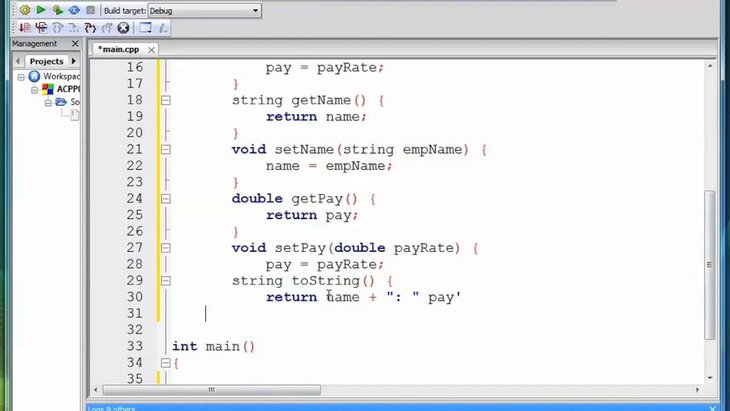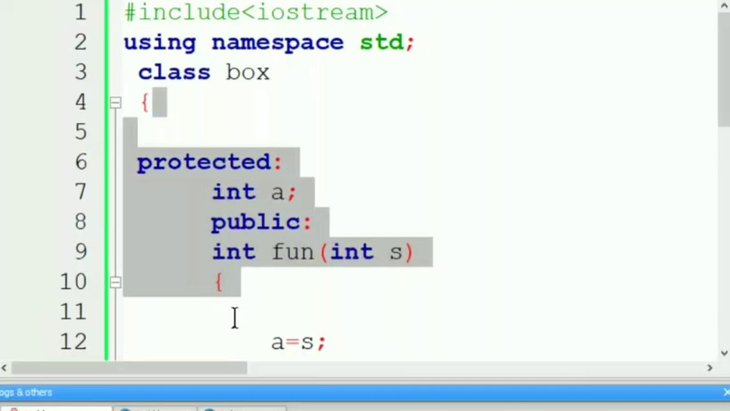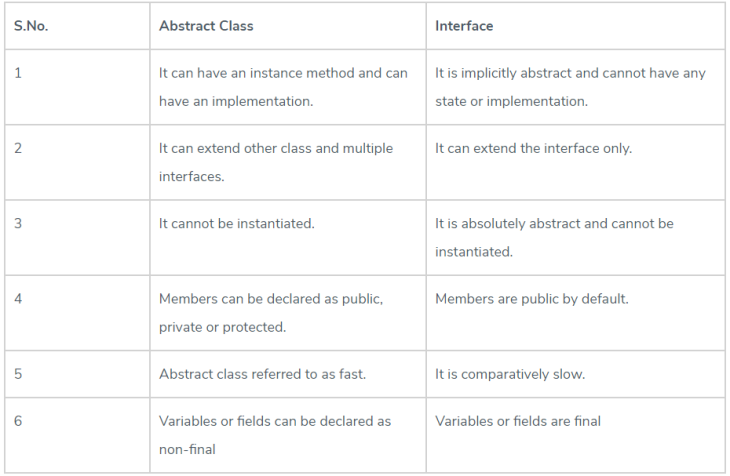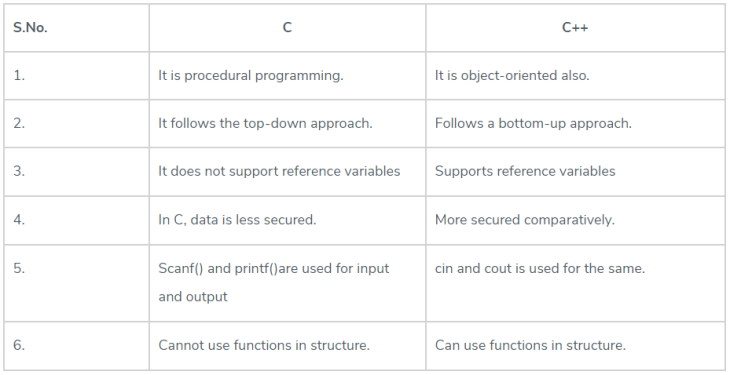10 Most Common C++ Interview Questions And Answers
Aadhya Khatri - Jan 07, 2020

Here are the most asked C++ interview questions for both experienced and non-experienced candidates
C++ is a mid-level language as it combines the distinctive features of both low and high programming languages. Bjarne Stroustrup developed C++ in 1979 and the language is object-oriented.
If you are preparing for a C++ interview, you might want to know all the most common C++ interview questions. What you will find here belong to the basic and advanced categories:

Part 1 – Basic C++ Interview Questions
Here are basic C++ interview questions and answers:
Question 1: Definition of “Class?”

Class is what specifies data structure. It is the blueprint describing supported types’ states. For example, student class is the details on their names, ages, addresses, and much other information.
Question 2: Definition of “Object?”
This is one of the most basic C++ interview questions. Object can be defined as the instance of a class. It can have behavior and states. After you have created an object in class, you can have access to the defined members of the class with the aid of the object.
Question 3: Explanation of concepts and features of OOP (Object-oriented programming)?
Concepts and features of Object-oriented programming are: Polymorphism, Encapsulation, Abstraction, and Inheritance.
Here are their definitions:
Polymorphism is reference to several forms. It is used whenever a member function is called and it executes distinct functions according to the kinds of object that invokes the function.
Encapsulation is the reference to data hiding. It is for operation and data binding, as well as hiding them away from users. With protected, private, and public access specifiers can help with achieving encapsulation. You can prevent or grant access to users with it.
Abstraction can be used to hide away the implementations happening internally and show the needed details to the users. With interface or abstract class, you can implement abstraction.
For example, in Calculator, whenever the input is provided, it will show only the corresponding output. What goes into the finding of these output is hidden from the users.
Inheritance is the process of using existing classes to make new classes. The word derived from the fact that the child class will inherit the properties possessed by the parent. You may hear other words like Base class to refer to parent class and Derived class to call the child class. Inheritance is mainly for parent class extending and code reusability.
Question 4: C++ access specifiers?

In an object-oriented language like C++, the term access specifier refers to the keywords determining the class accessibility, methods, functions, and other members. Protected, Private and Public are the three access specifiers in C++.
Here are the detailed definition of these terms:
Protected fields and members can only be accessed outside of the class if only the second class is derived from that class.
Private fields and members can never be accessed outside of that class but from inside only.
Public fields and members do not have the above restrictions and can be accessed outside the class.
Question 5: The differences between Interface and Abstract class?
Here are the differences of these classes:

Part 2 – Advanced C++ Interview Questions
Here are advanced interview questions on C++:
Question 6: Define inheritance and inheritance types?
The definition of inheritance can be found in question 2, section Basic C++ interview questions. The different types are:
Hierarchical Inheritance is a reference to when several child classes have the properties of one same parent class.
Multilevel Inheritance refers to when the child class is the parent class of another class.
Hybrid Inheritance is a multilevel inheritance and hierarchical inheritance combined.
Single inheritance is a reference to the occasion when there is only one base class and one child class.
Question 7: C++ variables and data types?
The phrases data type refers to variable types and so the memory spaces allocated by the OS, as well as what is stored. The value is assigned for declared variables, all while memory space is reserved for the value. For example, in “int X,” “int” refers to the data type and “X” is the variable. Some examples of data types are void, int, float, double, bool, char, and long.
Question 8: Definition of destructor and constructor in C++?
Once the new object of the class is created, the constructor will be executed. Its name will be the same as that of the class. It can also be a default constructor, meaning it will have no parameter and is not mentioned. On the contrary, the parameterized constructor needs to have parameters, be mentioned and declared in a class.
When object of a particular class is not in use anymore or not in scope, the destructor will be executed. It will also take the same name as the class but has the ~ sign in front. It is mostly used for file closing and resource releasing.
Question 9: Definition of C++ virtual functions
This is one of the advanced C++ interview questions. It is in use when a parent class’s implementation needs to be replaced. They are declared with the word virtual in class.
Once the overridden method is invoked with reference to the base class and a base class type reference is initialized using a derived class’s object, the method of the derived class will be invoked.
Question 10: The differences between C and C++?

These are C++ interview questions for experienced as well as non-experienced candidates.
Featured Stories

Features - Jul 01, 2025
What Are The Fastest Passenger Vehicles Ever Created?

Features - Jun 25, 2025
Japan Hydrogen Breakthrough: Scientists Crack the Clean Energy Code with...

ICT News - Jun 25, 2025
AI Intimidation Tactics: CEOs Turn Flawed Technology Into Employee Fear Machine

Review - Jun 25, 2025
Windows 11 Problems: Is Microsoft's "Best" OS Actually Getting Worse?

Features - Jun 22, 2025
Telegram Founder Pavel Durov Plans to Split $14 Billion Fortune Among 106 Children

ICT News - Jun 22, 2025
Neuralink Telepathy Chip Enables Quadriplegic Rob Greiner to Control Games with...

Features - Jun 21, 2025
This Over $100 Bottle Has Nothing But Fresh Air Inside

Features - Jun 18, 2025
Best Mobile VPN Apps for Gaming 2025: Complete Guide

Features - Jun 18, 2025
A Math Formula Tells Us How Long Everything Will Live

Features - Jun 16, 2025
Comments
Sort by Newest | Popular